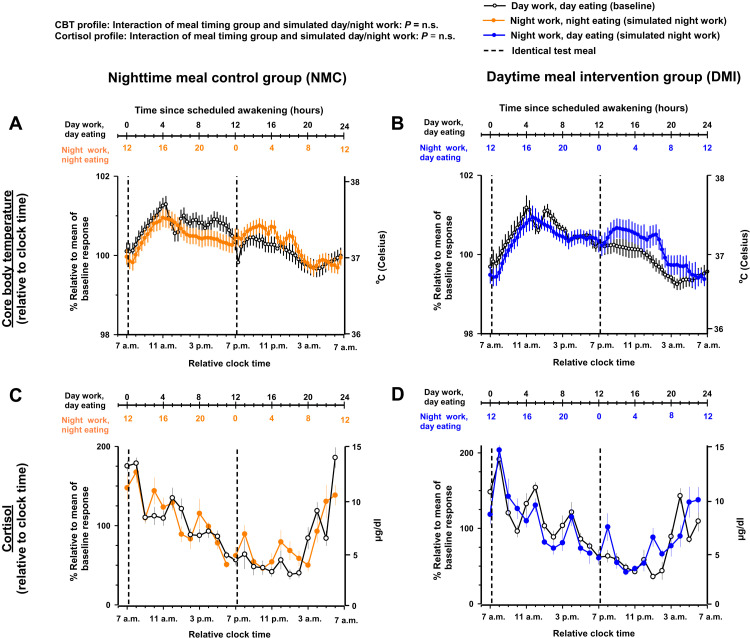Fig. 7. Effects of meal timing intervention on the time course of CBT and cortisol.
The meal timing intervention did not significantly modify the impact of simulated night work on the average values of CBT and cortisol. Accordingly, simulated night work did not significantly impact the overall levels of CBT (A and B) and cortisol (C and D), as compared to baseline, in either group. Results are shown relative to 24-hour clock time, as a proxy for circadian phase. As expected for outputs under strong central circadian control, CBT and cortisol profiles closely followed the 24-hour clock time. Data correspond to the average (mean ± SEM) across participants per simulated day/night work condition and per meal timing group (n = 10 in the NMC group and n = 9 in the DMI group).

